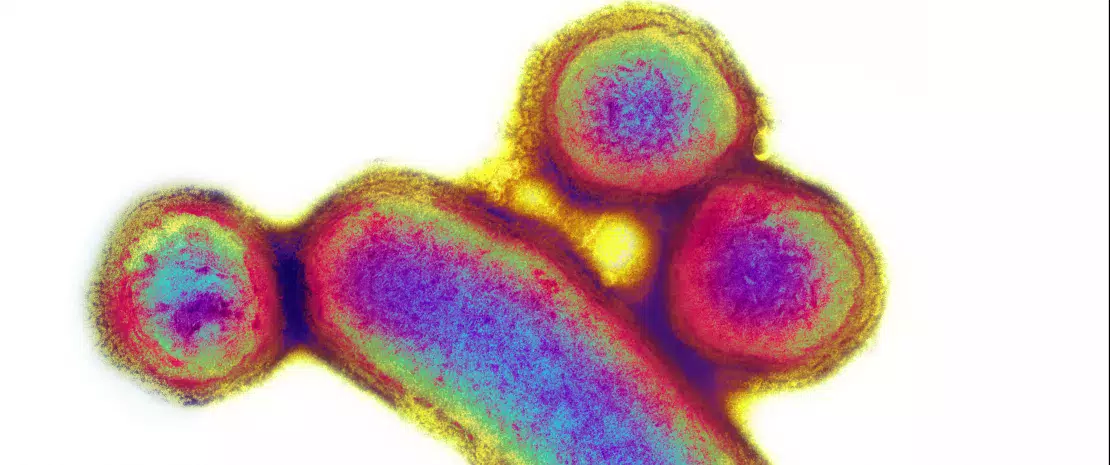Alcohol use disorders: in microbiota veritas?
Millions of people around the world drink alcohol on a regular basis, but not all develop alcohol use disorders. A study published in Translational Psychiatry1 suggests that gut microbiota composition may help explain inter-individual differences in drinking patterns.
Lay public section
Find here your dedicated section
Sources
This article is based on scientific information

About this article
The gut microbiota interacts with the central nervous system and is involved in numerous diseases, including mental illnesses. It determines the way the body adapts and responds to its environment, which may include our responses to alcohol consumption. Some people seem to enjoy and/or tolerate alcohol more than others, while others are more prone to abuse and addiction. Spanish researchers have explored the links between the gut microbiota and behavior towards alcohol in humans and animals.
3 million Alcohol abuse causes 3 million deaths worldwide each year.
Gut microbiota and transit modified in heaviest drinkers
The researchers used a questionnaire to assess the weekly alcohol consumption in grams of 507 students (83.3% female, mean age 19.8 years), taking into account the type and amount of alcohol consumed, the time elapsed between 2 drinking episodes, and the subject’s weight. The appearance of the participants’ feces was classified according to the Bristol scale. While nearly 55% had type 3 stool, the heaviest drinkers tended to have type 1, with a linear relationship between stool type 1 and alcohol consumption. This result was unexpected, since alcohol abuse is usually associated with diarrhea. To study the effect of alcohol consumption on the composition of the gut microbiota, the researchers analyzed fecal samples from the 17 non-drinkers in the cohort and from the 17 heaviest drinkers. (sidenote: α diversity A measure indicating the diversity of a single sample, i.e. the number of different species present in an individual. Hamady M, Lozupone C, Knight R. Fast UniFrac: facilitating high-throughput phylogenetic analyses of microbial communities including analysis of pyrosequencing and PhyloChip data. ISME J. 2010;4:17-27. https://www.nature.com/articles/ismej200997 ) did not differ significantly between the two groups, but (sidenote: β diversity A measure indicating the species diversity between samples, it allows to assess the variability of microbiota diversity between subjects. Hamady M, Lozupone C, Knight R. Fast UniFrac: facilitating high-throughput phylogenetic analyses of microbial communities including analysis of pyrosequencing and PhyloChip data. ISME J. 2010;4:17-27. https://www.nature.com/articles/ismej20099 ) showed a greater abundance of Actinobacteria in the heavy drinkers.
Alcohol use disorders are estimated to affect around 107 million people worldwide (70% men). The prevalence is highest in those aged between 25 and 34 years old. In Russia, 1 in 10 people between the ages of 30 and 34 are alcoholics.2
Rats receiving a transplant develop a taste for alcohol
The researchers then induced alcohol dependence in 8 rats via intragastric administration of alcohol for ten days, until signs of withdrawal appeared. Fecal samples were taken from these animals and transplanted into recipient rats. Two weeks later, the voluntary alcohol consumption among the latter was 27.4% higher than among controls. This time-lapse suggests that the new microbiota is the cause, rather than a consequence, of increased alcohol consumption. A gut microbiota analysis in the alcoholic donor and recipient rats suggests that the genus Porphyromonas, which was significantly less abundant in these animals than in controls, may be associated with the urge to consume alcohol. The researchers did not find any bacterial genus with increased content, but noted that in other studies, Actinobacteria were more abundant in alcoholic mice, just like they are in humans.
They believe the implanted microbiota to be a predisposing factor: when alcohol is added, this new microbiota somehow favors the abundance of bacteria that benefit the most from alcohol consumption. Moreover, given the observed reduction in locomotor activity in the recipient rats, the implanted microbiota may also modify their behavior towards alcohol by influencing cerebral dopaminergic neurotransmission and the brain’s reward system.
Managing alcohol use disorders via the microbiota
To conclude, the authors believe that this study supports a link between the gut microbiota and alcohol consumption. Furthermore, treating the gut microbiota with probiotics and/or prebiotics may help manage alcohol use disorders. The relevant genera and species have yet to be determined.
2. Ritchie H, Roser M. Alcohol Consumption. Our World Data (April 2018, revised January 2022) : https://ourworldindata.org/alcohol-consumption







